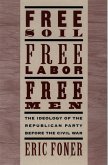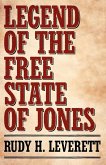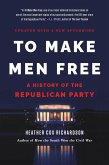This book combines a sweeping narrative of the Civil War with a bold new look at the war's significance for American society. Professor Hummel sees the Civil War as America's turning point: simultaneously the culmination and repudiation of the American revolution.
While the chapters tell the story of the Civil War and discuss the issues raised in readable prose, each chapter is followed by a detailed bibliographical essay, looking at all the different major works on the subject, with their varying ideological viewpoints and conclusions.
In his economic analysis of slavery, Professor Hummel takes a different view than the two major poles which have determined past discussions of the topic. While some writers claim that slavery was unprofitable and harmful to the Southern economy, and others maintain it was profitable and efficient for the South, Hummel uses the economic concept of Deadweight Loss to show that slavery was both highly profitable for slave owners and harmful to Southern economic development.
While highly critical of Confederate policy, Hummel argues that the war was fought to prevent secession, not to end slavery, and that preservation of the Union was not necessary to end slavery: the North could have let the South secede peacefully, and slavery would still have been quickly terminated. Part of Hummel's argument is that the South crucially relied on the Northern states to return runaway slaves to their owners.
This new edition has a substantial new introduction by the author, correcting and supplementing the account given in the first edition (the major revision is an increase in the estimate of total casualties) and a foreword by John Majewski, a rising star of Civil War studies.
While the chapters tell the story of the Civil War and discuss the issues raised in readable prose, each chapter is followed by a detailed bibliographical essay, looking at all the different major works on the subject, with their varying ideological viewpoints and conclusions.
In his economic analysis of slavery, Professor Hummel takes a different view than the two major poles which have determined past discussions of the topic. While some writers claim that slavery was unprofitable and harmful to the Southern economy, and others maintain it was profitable and efficient for the South, Hummel uses the economic concept of Deadweight Loss to show that slavery was both highly profitable for slave owners and harmful to Southern economic development.
While highly critical of Confederate policy, Hummel argues that the war was fought to prevent secession, not to end slavery, and that preservation of the Union was not necessary to end slavery: the North could have let the South secede peacefully, and slavery would still have been quickly terminated. Part of Hummel's argument is that the South crucially relied on the Northern states to return runaway slaves to their owners.
This new edition has a substantial new introduction by the author, correcting and supplementing the account given in the first edition (the major revision is an increase in the estimate of total casualties) and a foreword by John Majewski, a rising star of Civil War studies.
Dieser Download kann aus rechtlichen Gründen nur mit Rechnungsadresse in A, D ausgeliefert werden.









